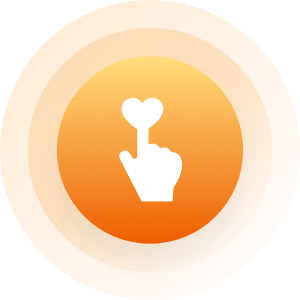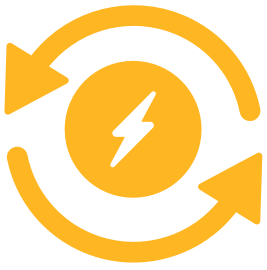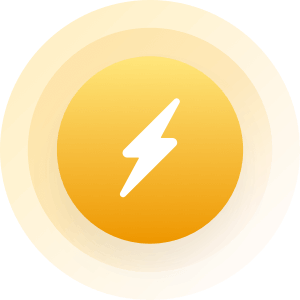| Topic: How the brain works | |
|---|---|
|
So i've been having school tests recently and i've been struggling. Either the papers were hard or i'm just plain lousy. The papers i struggle most with always is the maths and science paper. I cant seem to understand abstract logic, i cant visualise things well and i cant seem to be able to tweak the formulas and apply it to questions. I dont know why. But when it comes to humanities, i can do so much better.. History, social studies and geography all seem much easier than me. I've been wondering why but i have no clue as to why this is so. Many say girls are generally better at languages and stuff because we are more sensitive, meticulous and attentive. well i think it's quite stereotypical. I want to know what makes one good at maths and science and what makes one good at languages. Is it the left and right brain that plays a vital role? Or is it the study methods? Or the passion one has for that subject? Or the environment they grew up learning in? Care to share some opinion? well, be sure to leave a comment! i appreciate it greatly! :D
|
|
|
|
|
|
So i've been having school tests recently and i've been struggling. Either the papers were hard or i'm just plain lousy. The papers i struggle most with always is the maths and science paper. I cant seem to understand abstract logic, i cant visualise things well and i cant seem to be able to tweak the formulas and apply it to questions. I dont know why. But when it comes to humanities, i can do so much better.. History, social studies and geography all seem much easier than me. I've been wondering why but i have no clue as to why this is so. Many say girls are generally better at languages and stuff because we are more sensitive, meticulous and attentive. well i think it's quite stereotypical. I want to know what makes one good at maths and science and what makes one good at languages. Is it the left and right brain that plays a vital role? Or is it the study methods? Or the passion one has for that subject? Or the environment they grew up learning in? Care to share some opinion? well, be sure to leave a comment! i appreciate it greatly! :D For me it's just the opposite. I am weak in humanities and language and I have worked real hard to pass in those exams. Now that I have crossed that age, it doesn't matter to me any more. Its probably a combination of all that you have stated. I guess you should take it as a challenge and give more time to math and science. Some people lack spatial logic to start with but it shouldn't deter them from taking it by the horn. |
|
|
|
|
|
@lukinfolov
spatial what???? hahaha. thanks for commenting again!! |
|
|
|
|
|
@lukinfolov spatial what???? hahaha. thanks for commenting again!! Three dimensional space problems.. |
|
|
|
|
|
So i've been having school tests recently and i've been struggling. Either the papers were hard or i'm just plain lousy. The papers i struggle most with always is the maths and science paper. I cant seem to understand abstract logic, i cant visualise things well and i cant seem to be able to tweak the formulas and apply it to questions. I dont know why. But when it comes to humanities, i can do so much better.. History, social studies and geography all seem much easier than me. I've been wondering why but i have no clue as to why this is so. Many say girls are generally better at languages and stuff because we are more sensitive, meticulous and attentive. well i think it's quite stereotypical. I want to know what makes one good at maths and science and what makes one good at languages. Is it the left and right brain that plays a vital role? Or is it the study methods? Or the passion one has for that subject? Or the environment they grew up learning in? Care to share some opinion? well, be sure to leave a comment! i appreciate it greatly! :D most people can overcome any type of learning problems, mainly it just takes dedication and study... i found that different people have different ways of teaching, maybe find a tutor that has a different style of teaching so it's easier for you to learn what you need to... |
|
|
|
|
|
@mightymoe
yeah i agree those traits are important. thanks for the tip! |
|
|
|
|
|
Edited by
JaiGi
on
Wed 07/08/15 12:50 PM
|
|
|
So i've been having school tests recently and i've been struggling. Either the papers were hard or i'm just plain lousy. The papers i struggle most with always is the maths and science paper. I cant seem to understand abstract logic, i cant visualise things well and i cant seem to be able to tweak the formulas and apply it to questions. I dont know why. But when it comes to humanities, i can do so much better.. History, social studies and geography all seem much easier than me. I've been wondering why but i have no clue as to why this is so. Many say girls are generally better at languages and stuff because we are more sensitive, meticulous and attentive. well i think it's quite stereotypical. I want to know what makes one good at maths and science and what makes one good at languages. Is it the left and right brain that plays a vital role? Or is it the study methods? Or the passion one has for that subject? Or the environment they grew up learning in? Care to share some opinion? well, be sure to leave a comment! i appreciate it greatly! :D The question could not be more delightfully presented.  For me it's just the opposite. I am weak in humanities and language and I have worked real hard to pass in those exams. Now that I have crossed that age, it doesn't matter to me any more. Its probably a combination of all that you have stated. I guess you should take it as a challenge and give more time to math and science. Some people lack spatial logic to start with but it shouldn't deter them from taking it by the horn. The response - spatial logic - is part of the answer and Guru Lukin in his impatience has left the thread hanging with just 10% done.  If we focus on math & science, we have to step back to foundation years: high school math. Around this time for instance, geometry is natural for boys - as they tend to play ball and more than the throw they follow the curve of the ball and learn to field a catch. So when boys put their mind to it - geometry works for them. On the other hand if girls were drawing up 3D pictures while young; the field evens up between both genders. Move to arithmetic: The numbers series can be followed, in fact girls should be able to discern patterns faster; but when it comes to formulas like compound interest - boys can sense the geometric rise between different rates - because of focus (i think). You see, catching a ball requires some sort of 'tunnel vision', and same goes while working on arithmetic formulas. (As I recall school days, graph paper fascinated me most). Then comes algebra: Boys are relatively 'poor' in language. so when they see a - b = 3 there is a natural affinity towards such abbreviation. Girls, from what I remember, are stronger in chemistry and bio-sciences. This could be due from their familiarity with 'cooking' and it's easier to see a 'compound' when you can make a perfect omelet. Or it could be because of their extra-ordinary language abilities - they find stories encapsulated within cells and other tissue materials. Fact is, as they are more organized at this high school years - they easily build on the 'stories', from building blocks to whole organs. Boys for some reason can rarely go beyond acid + alkali reactions and blood cells or the circulation systems. Ask them about the pancreas role in the digestive system (at high school) & one can see the effort visible on their faces. It's because pancreas does not come 'alive' in their minds. So math to physics or vice-a-versa has strong links to the playing field & spatial logic. There's another aspect: boys don't get overwhelmed with physics. Maybe it's the kite flying or paper planes; if the teacher inspires then they easily get fascinated into physics. So when faced with a new problem, they comfortably break it down to familiar pieces. So in my opinion: The processor called the brain gets defined by the applications it is most put on use to. This commonsense theory is too late but you could leverage your latent capability in a slightly different manner. Google the history of any topic in math / physics - 'the story in the discovery process' may catch the imagination. I sincerely think Newton hiding his 'crib notes' on gravity and calculus was grave injustice. Leibniz, with his integral calculus was the greater teacher. Talk about language - Leibniz was the better 'articulator'; Newton, for all his gifts, hated him for the rest of his life. So it is with all men, we cannot live with the more articulate women. - Just be warned. But if a woman used abbreviated language, men could get along better with them.    Goodluck. |
|
|
|
|
|
OP the possible solution to your dilemma is to stay focused.
Focus on your goal 110 percent & clear your mind of all other confusions |
|
|
|
|
|
The distinction I draw between math & the sciences, and the humanities is that the first field is generally linear: you plug certain numbers into an equation in the proper order, and you get a definite result somewhere down the line (this is as true for the Scientific Method, which gives you steps and procedures to follow in order to achieve reproducible results). If you plug in all the right numbers, you get the same result every time.
The humanities, on the other hand, are non-linear. There generally is not a single "right" answer beyond certain recorded facts that you might need to know. Fields like history, English/language arts, and rhetoric are the fields that give you the room to argue - whereas in math and science, the only arguments come about when someone accuses someone else of not following a step correctly - the results are supposed to speak for themselves. In the humanities, even if you plugged in all the right "numbers", and technically got the same result, the interpretation of that result can still vary widely. Some people are better at the linear thinking, others at the non-linear, and to different degrees. (I can sit down and do math, but I can't do anything more advanced than nice round percentages in my head. On the other hand, I can write paragraphs of fiction in my head at the drop of a hat, but I'm still good at "eye-balling" the trajectories of thrown objects given constant forces.) As a couple previous posters have mentioned, the real trick is to be dedicated to your field of study, and you will eventually succeed. A lot of people decide early on that a given field is "too hard" for them, and they give up on it before they learn the mental tools they need to keep learning in that given field - i.e., "how to think", instead of just "what to think". |
|
|
|
|
|
Edited by
Lukinfolov
on
Thu 07/09/15 01:45 AM
|
|
|
So i've been having school tests recently and i've been struggling. Either the papers were hard or i'm just plain lousy. The papers i struggle most with always is the maths and science paper. I cant seem to understand abstract logic, i cant visualise things well and i cant seem to be able to tweak the formulas and apply it to questions. I dont know why. But when it comes to humanities, i can do so much better.. History, social studies and geography all seem much easier than me. I've been wondering why but i have no clue as to why this is so. Many say girls are generally better at languages and stuff because we are more sensitive, meticulous and attentive. well i think it's quite stereotypical. I want to know what makes one good at maths and science and what makes one good at languages. Is it the left and right brain that plays a vital role? Or is it the study methods? Or the passion one has for that subject? Or the environment they grew up learning in? Care to share some opinion? well, be sure to leave a comment! i appreciate it greatly! :D The question could not be more delightfully presented.  For me it's just the opposite. I am weak in humanities and language and I have worked real hard to pass in those exams. Now that I have crossed that age, it doesn't matter to me any more. Its probably a combination of all that you have stated. I guess you should take it as a challenge and give more time to math and science. Some people lack spatial logic to start with but it shouldn't deter them from taking it by the horn. The response - spatial logic - is part of the answer and Guru Lukin in his impatience has left the thread hanging with just 10% done.  If we focus on math & science, we have to step back to foundation years: high school math. Around this time for instance, geometry is natural for boys - as they tend to play ball and more than the throw they follow the curve of the ball and learn to field a catch. So when boys put their mind to it - geometry works for them. On the other hand if girls were drawing up 3D pictures while young; the field evens up between both genders. Move to arithmetic: The numbers series can be followed, in fact girls should be able to discern patterns faster; but when it comes to formulas like compound interest - boys can sense the geometric rise between different rates - because of focus (i think). You see, catching a ball requires some sort of 'tunnel vision', and same goes while working on arithmetic formulas. (As I recall school days, graph paper fascinated me most). Then comes algebra: Boys are relatively 'poor' in language. so when they see a - b = 3 there is a natural affinity towards such abbreviation. Girls, from what I remember, are stronger in chemistry and bio-sciences. This could be due from their familiarity with 'cooking' and it's easier to see a 'compound' when you can make a perfect omelet. Or it could be because of their extra-ordinary language abilities - they find stories encapsulated within cells and other tissue materials. Fact is, as they are more organized at this high school years - they easily build on the 'stories', from building blocks to whole organs. Boys for some reason can rarely go beyond acid + alkali reactions and blood cells or the circulation systems. Ask them about the pancreas role in the digestive system (at high school) & one can see the effort visible on their faces. It's because pancreas does not come 'alive' in their minds. So math to physics or vice-a-versa has strong links to the playing field & spatial logic. There's another aspect: boys don't get overwhelmed with physics. Maybe it's the kite flying or paper planes; if the teacher inspires then they easily get fascinated into physics. So when faced with a new problem, they comfortably break it down to familiar pieces. So in my opinion: The processor called the brain gets defined by the applications it is most put on use to. This commonsense theory is too late but you could leverage your latent capability in a slightly different manner. Google the history of any topic in math / physics - 'the story in the discovery process' may catch the imagination. I sincerely think Newton hiding his 'crib notes' on gravity and calculus was grave injustice. Leibniz, with his integral calculus was the greater teacher. Talk about language - Leibniz was the better 'articulator'; Newton, for all his gifts, hated him for the rest of his life. So it is with all men, we cannot live with the more articulate women. - Just be warned. But if a woman used abbreviated language, men could get along better with them.    Goodluck. I agree, apart from the differences in brains between men and women, their skills in spatial logic can be traced back to their activities at their young ages when they were just about to understand how nature worked. Things like playing football, flying paper planes or kites or playing with building blocks or the kind of toys do help in formal learning at a later age. Girls on the other hand, are fond of reading story books which helps them have better language skills or speak more lucidly and effortlessly. In terms of the brain, the more you visit a particular situation, greater would be the axon-dendrite synapse connections in the related zone of the brain and higher would your clarity or understanding on the same or similar conditions. |
|
|
|
|
|
Edited by
Pansytilly
on
Thu 07/09/15 03:00 AM
|
|
|
So i've been having school tests recently and i've been struggling. Either the papers were hard or i'm just plain lousy. The papers i struggle most with always is the maths and science paper. I cant seem to understand abstract logic, i cant visualise things well and i cant seem to be able to tweak the formulas and apply it to questions. I dont know why. But when it comes to humanities, i can do so much better.. History, social studies and geography all seem much easier than me. I've been wondering why but i have no clue as to why this is so. Many say girls are generally better at languages and stuff because we are more sensitive, meticulous and attentive. well i think it's quite stereotypical. I want to know what makes one good at maths and science and what makes one good at languages. Is it the left and right brain that plays a vital role? Or is it the study methods? Or the passion one has for that subject? Or the environment they grew up learning in? Care to share some opinion? well, be sure to leave a comment! i appreciate it greatly! :D The question could not be more delightfully presented.  For me it's just the opposite. I am weak in humanities and language and I have worked real hard to pass in those exams. Now that I have crossed that age, it doesn't matter to me any more. Its probably a combination of all that you have stated. I guess you should take it as a challenge and give more time to math and science. Some people lack spatial logic to start with but it shouldn't deter them from taking it by the horn. The response - spatial logic - is part of the answer and Guru Lukin in his impatience has left the thread hanging with just 10% done.  If we focus on math & science, we have to step back to foundation years: high school math. Around this time for instance, geometry is natural for boys - as they tend to play ball and more than the throw they follow the curve of the ball and learn to field a catch. So when boys put their mind to it - geometry works for them. On the other hand if girls were drawing up 3D pictures while young; the field evens up between both genders. Move to arithmetic: The numbers series can be followed, in fact girls should be able to discern patterns faster; but when it comes to formulas like compound interest - boys can sense the geometric rise between different rates - because of focus (i think). You see, catching a ball requires some sort of 'tunnel vision', and same goes while working on arithmetic formulas. (As I recall school days, graph paper fascinated me most). Then comes algebra: Boys are relatively 'poor' in language. so when they see a - b = 3 there is a natural affinity towards such abbreviation. Girls, from what I remember, are stronger in chemistry and bio-sciences. This could be due from their familiarity with 'cooking' and it's easier to see a 'compound' when you can make a perfect omelet. Or it could be because of their extra-ordinary language abilities - they find stories encapsulated within cells and other tissue materials. Fact is, as they are more organized at this high school years - they easily build on the 'stories', from building blocks to whole organs. Boys for some reason can rarely go beyond acid + alkali reactions and blood cells or the circulation systems. Ask them about the pancreas role in the digestive system (at high school) & one can see the effort visible on their faces. It's because pancreas does not come 'alive' in their minds. So math to physics or vice-a-versa has strong links to the playing field & spatial logic. There's another aspect: boys don't get overwhelmed with physics. Maybe it's the kite flying or paper planes; if the teacher inspires then they easily get fascinated into physics. So when faced with a new problem, they comfortably break it down to familiar pieces. So in my opinion: The processor called the brain gets defined by the applications it is most put on use to. This commonsense theory is too late but you could leverage your latent capability in a slightly different manner. Google the history of any topic in math / physics - 'the story in the discovery process' may catch the imagination. I sincerely think Newton hiding his 'crib notes' on gravity and calculus was grave injustice. Leibniz, with his integral calculus was the greater teacher. Talk about language - Leibniz was the better 'articulator'; Newton, for all his gifts, hated him for the rest of his life. So it is with all men, we cannot live with the more articulate women. - Just be warned. But if a woman used abbreviated language, men could get along better with them.    Goodluck. the brain is plastic. that's how it works. |
|
|
|
|
|
Edited by
JaiGi
on
Sat 07/11/15 10:53 AM
|
|
|
Pansy, we people become so enamored in our co-existence in M2 that even in the science forum it's difficult to debate. Let's keep aside the "life always has been hard & so love to keep us going", for the moment and hardcore debate on 'learning'.
Brain is plastic How easily said, like Bill Clinton I refer you to to Mr. E who said that 'knowledge without imagination is quite useless'. Although I do understand the plasticity of the brain as a property to embrace new ideas or build on old (without loss of anchorage); something quite different takes place in scientific thought (uncharted area). That something is external tangible inputs, sometimes unexplainable, 'data' which opens newer frontiers!! I realize that plasticity allows us to embrace new data but plasticity as a term is better associated with the ability of acquisition of past pedagogy & other historical knowledge & proven processes. For exploration beyond experience we definitely need to crash out of this 'known or knowable knowledge base' - plasticity. There is a movement going on to chart a different future by the restless young from Japan to the USA and this requires some sort of DNA quantum frog jump leaps of imagination. heck, i just had a beer but to me plasticity con-notates adaptation to changing environ, i think this gen of young people don't care to live in the past at all; they don't care about oil running out; global warming, relationships and ISIS - from my experience in India forums, ha,ha. Sex is something they want to get over with before they hit their thirties. There seems to be undue pressure by school systems to acquire a larger knowledge base than we had to when we were there and it's either they get overwhelmed by this knowledge or get into a frenzy if they want to ladder up for a job in this knowledge economy. Conclusion: The study of our brain - has been least understood except for its nutritional / psychological needs for love & basic existence. The need to reevaluate the brain is never more important than today since for Princessbloom and her gen, the world is changing under their feet.   Not quite sure what the conclusion was leading to but now that i'm on my second beer - sure sounds good. Not quite sure what the conclusion was leading to but now that i'm on my second beer - sure sounds good.  |
|
|
|
|
|
Edited by
Pansytilly
on
Sat 07/11/15 12:15 PM
|
|
|
Pansy, we people become so enamored in our co-existence in M2 that even in the science forum it's difficult to debate. Let's keep aside the "life always has been hard & so love to keep us going", for the moment and hardcore debate on 'learning'. Brain is plastic How easily said, like Bill Clinton I refer you to to Mr. E who said that 'knowledge without imagination is quite useless'. Although I do understand the plasticity of the brain as a property to embrace new ideas or build on old (without loss of anchorage); something quite different takes place in scientific thought (uncharted area). That something is external tangible inputs, sometimes unexplainable, 'data' which opens newer frontiers!! I realize that plasticity allows us to embrace new data but plasticity as a term is better associated with the ability of acquisition of past pedagogy & other historical knowledge & proven processes. For exploration beyond experience we definitely need to crash out of this 'known or knowable knowledge base' - plasticity. There is a movement going on to chart a different future by the restless young from Japan to the USA and this requires some sort of DNA quantum frog jump leaps of imagination. heck, i just had a beer but to me plasticity con-notates adaptation to changing environ, i think this gen of young people don't care to live in the past at all; they don't care about oil running out; global warming, relationships and ISIS - from my experience in India forums, ha,ha. Sex is something they want to get over with before they hit their thirties. There seems to be undue pressure by school systems to acquire a larger knowledge base than we had to when we were there and it's either they get overwhelmed by this knowledge or get into a frenzy if they want to ladder up for a job in this knowledge economy. Conclusion: The study of our brain - has been least understood except for its nutritional / psychological needs for love & basic existence. The need to reevaluate the brain is never more important than today since for Princessbloom and her gen, the world is changing under their feet.   Not quite sure what the conclusion was leading to but now that i'm on my second beer - sure sounds good. Not quite sure what the conclusion was leading to but now that i'm on my second beer - sure sounds good.  I was responding to your comment on using abbreviated language.... The brain is both neuro and psyche. In either case...still plastic. Anything that proceeds from it (philosophy, analysis, creativity, heck even voluntary muscle movement) is a product of plasticity plus the discipline to train and develop. I seriously doubt princessbloom will be reading any of this. I also seriously doubt that any discourse occurring here will significantly affect the current generation of teens and yuppies to abandon their preoccupation with sex (if they are already fixated on it to begin with)...that applies to any country. Here's another round, on me 
|
|
|
|
|
|
I have no clue how it works! I'm still trying to figuring out ,who turned it on? and how do I shut it off... when I need to

|
|
|
|
|
|
I have no clue how it works! I'm still trying to figuring out ,who turned it on? and how do I shut it off... when I need to  Its the direction of blood flow....try walking on your hands... 
|
|
|
|
|
|
Thank you for this. Interesting reading.
|
|
|
|
|
|
As per my knowledge, it works with the past experiences and future expectations we have, what we know and what we want to know that's all on which mind works. If the past was good you'll come up with some positivism if not then opposite will happen
|
|
|
|
|
|
The brain is both neuro and psyche. In either case...still plastic. Anything that proceeds from it (philosophy, analysis, creativity, heck even voluntary muscle movement) is a product of plasticity plus the discipline to train and develop. Interesting. the way you put it. |
|
|
|
|
|
The brain is both neuro and psyche. In either case...still plastic. Anything that proceeds from it (philosophy, analysis, creativity, heck even voluntary muscle movement) is a product of plasticity plus the discipline to train and develop. Interesting. the way you put it. But true. Simple and abbreviated. 
|
|
|
|
|
















